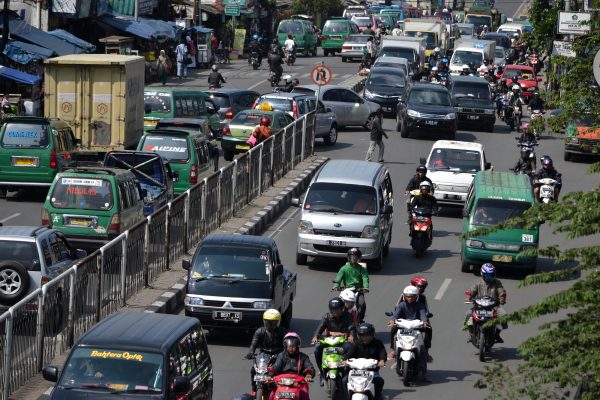Indonesia has bitten the bullet and cut its subsidies for fuel, after the government’s attempts to hold down the cost of petrol amid rising global oil prices threatened to blow a multi-billion dollar hole in the national budget. The move caused the price of subsidized petrol across the archipelago to jump by about 30 percent on Saturday, from 7,650 rupiah ($0.51) to 10,000 rupiah ($0.67) per liter, while the cost of subsidized diesel rose from 5,150 rupiah ($0.35) to 6,800 rupiah ($0.46).
The Associated Press reported that “long lines of motorbikes and cars snaked around gas stations as motorists waited for hours to fill up their tanks with cheaper gas before the increase took effect.”
For months, the Indonesian government has kept inflation under wraps by subsidizing the cost of basic goods, but the cost of doing so has become so heavy that President Joko Widodo’s administration has taken the political risk of passing some of this price onto Indonesian consumers.
Jokowi, as he is commonly known, stated last month that the state had raised the state budget allocation for subsidies from 152 trillion rupiah ($10.2 billion) to 502 trillion rupiah ($33.8 billion), as a result of rising global oil prices and the weakening of the Indonesian rupiah.
“I actually wanted domestic fuel prices to remain affordable by providing subsidies, but the budget for subsidies has tripled and will continue to increase,” Jokowi told a news conference, according to Reuters. “Now the government has to make a decision in a difficult situation,” he added. “This is the government’s last option.” Finance Minister Sri Mulyani Indrawati said if prices were not raised, subsidies would have sucked another $13 billion out of the national budget between now and the end of the year.
For decades, state subsidies and other forms of market intervention have formed a central part of Indonesia’s political economy. As The Diplomat’s economics columnist James Guild has noted previously, “A key priority for the government is to ensure that the price of staple goods – such as gasoline, electricity, rice, and cooking oil – remains stable and affordable.” It has sought to do this via a number of measures, including subsidies, export restrictions, and a mechanism known as a Domestic Market Obligation, under which producers of certain raw materials must provide a certain percentage of production to the domestic market at generally below-market prices.
Earlier this year, the high price of cooking oil, a side effect of the Russia-Ukraine war, prompted a range of government interventions, including a temporary ban on exports. (The efforts were abandoned after failing to bring down costs.) The government has also recently imposed a coal export ban, after the stockpiles at Indonesia’s coal-powered electricity generation plants fell to dangerously low levels, threatening widespread blackouts.
The political dangers of inflation are clear in a country where economic turmoil has often been accompanied by political upheaval, not least in 1998, when the aftershocks of the Asian financial crisis ended the long reign of President Suharto.
This year’s spike in the price of cooking oil prompted protests and led to a sharp fall in Jokowi’s approval ratings. Figures released by pollster Indikator Politik Indonesia on May 15 showed that satisfaction with the Indonesian leader had fallen to 58.1 percent, 12 percent lower than in January. Moreover, the last time that fuel prices were raised, early in Jokowi’s first term in 2014, protests flared across the country.
What impact the current measures will have remains difficult to say. Falling approval ratings don’t mean a lot to a president who is still broadly popular, entering the twilight of his second term in office, and has no clear chosen successor. Indeed, it is for this reason that the government probably felt that it could safely relieve some of the pressure on the national budget without exacting too heavy a political cost. Much probably depends on how long the global inflationary trend continues, and how much worse things get. As it stands, there is every chance that Jokowi’s administration will ride out any minor political turbulence that comes its way.


